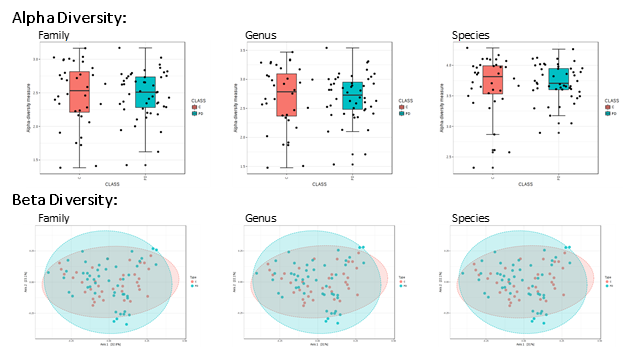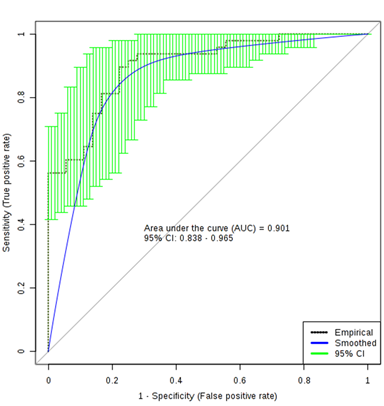Session Information
Date: Tuesday, September 24, 2019
Session Title: Parkinsonisms and Parkinson-Plus
Session Time: 1:45pm-3:15pm
Location: Agora 3 West, Level 3
Objective: To identify sensitive and specific biomarkers of changes in the oral microbiome of subjects with early stage Parkinson’s Disease and relate these to clinical, demographic, and functional measures.
Background: Changes in the function and microbiome composition of the upper and lower gastrointestinal tract have been documented in Parkinson’s disease (PD), although most studies have examined merely fecal microbiome profiles and patients with advanced disease states.
Method: Subjects completed detailed standardized assessments of motor, cognitive, balance, autonomic and chemosensory (smell and taste) functions. We also obtained a saliva sample for profiling of microbial RNA and DNA using shotgun and 16S next generation sequencing, respectively. Alignment and classification of reads was performed using Kraken and K-SLAM software.
Results: Our initial cohort involved 48 PD subjects and 36 age- and gender-matched healthy controls. A second cohort with similar numbers of subjects was also used for replication analyses. In the discovery cohort, we found no differences in overall alpha and beta diversity between subject groups (Fig 1). However, changes in specific microbial taxa were observed, including primarily bacteria, but also yeast and phage. Many of our findings were consistent with prior fecal microbiome studies, with others representing highly novel findings for early stage PD. Testing of the diagnostic utility of the microbiome data revealed potentially robust performance with as few as 11 taxonomic features achieving a cross-validated area under the ROC curve of 0.90 and overall accuracy of 84.5% (Fig 2). Comprehensive metabolic pathway analysis revealed shifts in a small set of pathways involved in amino acid and energy metabolism among the organisms comprising the oral microbiome. Comparison of metagenome and metatranscriptome profiles was also highly informative, yielding novel insight on the overall transcriptional output per organism. Notably, we also observed robust correlations between many microbiota and functional measures, including those reflecting cognition, balance, and disease duration.
Conclusion: These results suggest that the oral microbiome may represent a highly-accessible and informative microenvironment that offers new insights in the pathophysiology of early stage PD.
To cite this abstract in AMA style:
D. Mihaila, J. Donegan, M. Vidal, D. Larocca, R. Ericson, S. Barns, C. Neville, R. Uhlig, F. Middleton. The Oral Metagenome and Metatranscriptome of Early Stage Parkinson’s Disease and their Relationship with Clinical and Functional Outcome Measures of Motor and Nonmotor Function [abstract]. Mov Disord. 2019; 34 (suppl 2). https://www.mdsabstracts.org/abstract/the-oral-metagenome-and-metatranscriptome-of-early-stage-parkinsons-disease-and-their-relationship-with-clinical-and-functional-outcome-measures-of-motor-and-nonmotor-function/. Accessed April 21, 2025.« Back to 2019 International Congress
MDS Abstracts - https://www.mdsabstracts.org/abstract/the-oral-metagenome-and-metatranscriptome-of-early-stage-parkinsons-disease-and-their-relationship-with-clinical-and-functional-outcome-measures-of-motor-and-nonmotor-function/


